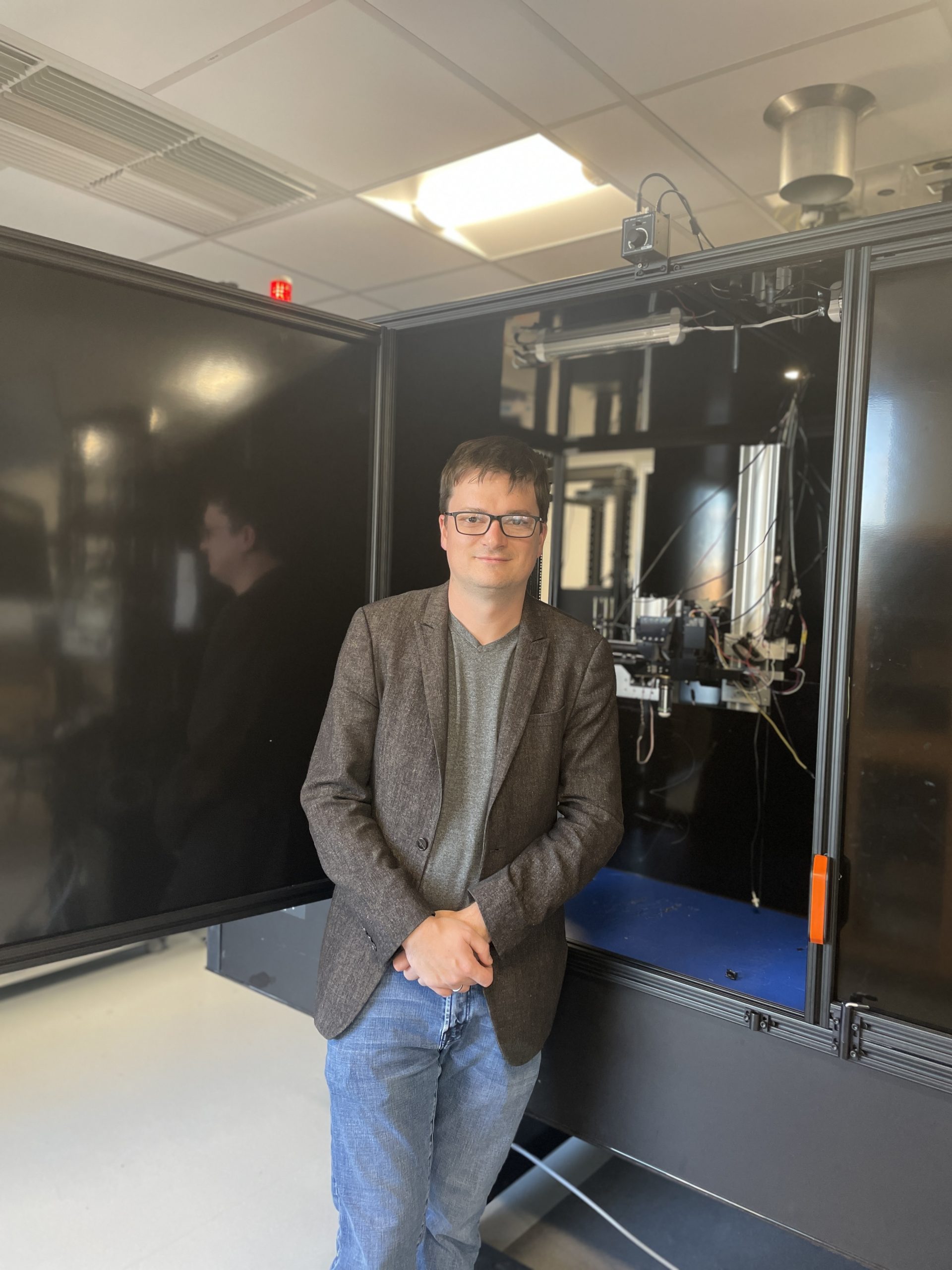Nico Pégard Selected for Kavli Innovation Grant
Nico Pégard Selected for Kavli Innovation Grant

Pégard’s research project focuses on the creation of a holographic microscope to more effectively capture 3D information. Alongside collaborator Srinivas Turaga (supported by the Howard Hughes Medical Institute at Janelia Research Campus) Pégard will use the grant funding to develop custom hardware and software to enable microscopy of 3D voltage imaging in deep-brain neural circuits. “Srini and I are going to develop an imaging technique that modulates the light spatially at high speed before it reaches a slower camera,” Pégard says. “By combining the speed of the modulator and the sensitivity of a slower camera, we hope to get fast, 3D, and precise measurements that cannot be obtained now.”
This innovative technology will directly impact an emerging field in neurosciences called “voltage imaging.” In this technique, fluorescent markers are used to observe voltage across the membrane of neurons in real time, allowing visualization of neurons’ activity with enhanced sensitivity compared to current calcium imaging techniques. Ultimately, “the technique would really help push forward voltage imaging among the neuroscience community as a next generation technique to investigate brain circuits and neural functions,” Pégard explains.
“We are working to leverage optical hardware and software to optimize and improve the way in which we look at voltage imaging,” Pégard adds. “Our design features custom optical hardware and computation methods to better access information from the brain and efficiently transfer it to the computer, while minimizing the opportunity for information to be lost.”
Established in 2000, the Kavli Foundation upholds a vision to advance science in the fields of astrophysics, nanoscience, neuroscience, and theoretical physics, bolster the relationship between science and society, and honor scientific discoveries. In addition to sponsoring faculty research through grant funding, the Kavli Foundation sponsors the Sculpted Light in the Brain conference (SLB). Created by Pégard in 2017 with two colleagues from the University of California, Berkeley, SLB unites scientists across disciplines – including neuroscientists, computer scientists, optics researchers- to share advances in novel technologies that use light to explore neural function. Pégard praises the conference for its unique ability “to create new opportunities by bringing together individuals who traditionally do not work together to collaborate toward shared solutions.”

